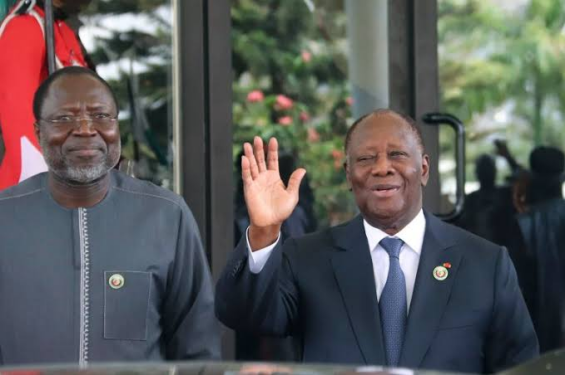
West African Leaders’ Summit Marks Formation of Sahel Alliance Amid ECOWAS Rift
Fiona Nanna, ForeMedia News
4 minutes read. Updated 5:00PM GMT Sun, 7 July, 2024
A significant summit of West African leaders has commenced in Abuja, Nigeria, following a recent alliance forged by military rulers from Burkina Faso, Mali, and Niger, who have severed ties with the Economic Community of West African States (ECOWAS).
The ECOWAS summit, hosted in Abuja, aims to address the growing rift with the three Sahel countries, which recently solidified their defense pact during a summit in Niamey, Niger. This pact, known as the Alliance of Sahel States, facilitates cooperation in response to armed rebellions or external threats, marking a departure from ECOWAS following its stringent stance against recent coups.
Reporting from the summit, Al Jazeera’s Ahmed Idris noted the strategic timing of the Sahel alliance’s announcement, aimed at demonstrating self-reliance apart from the regional bloc. However, analysts caution that Mali and Niger, particularly vulnerable as landlocked nations, may face challenges if ECOWAS member states decide to isolate them.
“Niger’s General Abdourahamane Tchiani described the 50-year-old ECOWAS as ‘a threat to our states,’ emphasizing the alliance’s intent to create an independent platform free from external influences,” reported Idris.
Despite ECOWAS lifting sanctions on Niger earlier this year in an effort to mend relations post-coup, progress remains minimal. Sanctions were imposed following a July 2023 coup in Niger, echoing similar political upheavals in Burkina Faso (September 2022) and Mali (August 2021).
Abdulaziz Abdulaziz, media assistant to the Nigerian president, acknowledged progress in managing fragile situations in these countries but highlighted ongoing tensions that necessitate careful diplomacy.
“As the Sahel region shifts towards alliances with global powers like Russia, the United States completes its withdrawal from Niger’s Air Base 101, originally established to counter armed groups affiliated with al-Qaeda and ISIL (ISIS),” Idris noted.
The departure of approximately 1,000 US military personnel underscores a broader shift in regional dynamics, exacerbated by strained relations with Western powers post-coups. France, historically influential as a former colonial power, completed its military withdrawal from Mali in 2022 and Niger and Burkina Faso in the subsequent year.
Despite political realignments, armed groups continue to pose a significant threat across the Sahel region. Kabir Adamu, a security consultant, emphasized the need for continued regional cooperation to combat these groups, warning of potential security vacuums if isolationist policies prevail.
“The Armed Conflict Location and Event Data Project (ACLED) reported over 8,000 deaths in Burkina Faso in 2023 alone, with Niger experiencing setbacks in gains against armed groups,” Adamu highlighted. In Mali, concerns persist over reported human rights abuses linked to Russian mercenaries collaborating with local military forces.
As West Africa navigates these complex geopolitical shifts, the region faces critical decisions regarding security alliances and international partnerships, impacting both regional stability and global security dynamics.
The West African leaders’ summit in Abuja serves as a pivotal moment amid evolving alliances and diplomatic tensions, underscoring the region’s quest for autonomy while navigating formidable security challenges. As global powers recalibrate their engagements in the Sahel, the outcomes of these diplomatic efforts will resonate far beyond the region’s borders, shaping future geopolitical landscapes.

